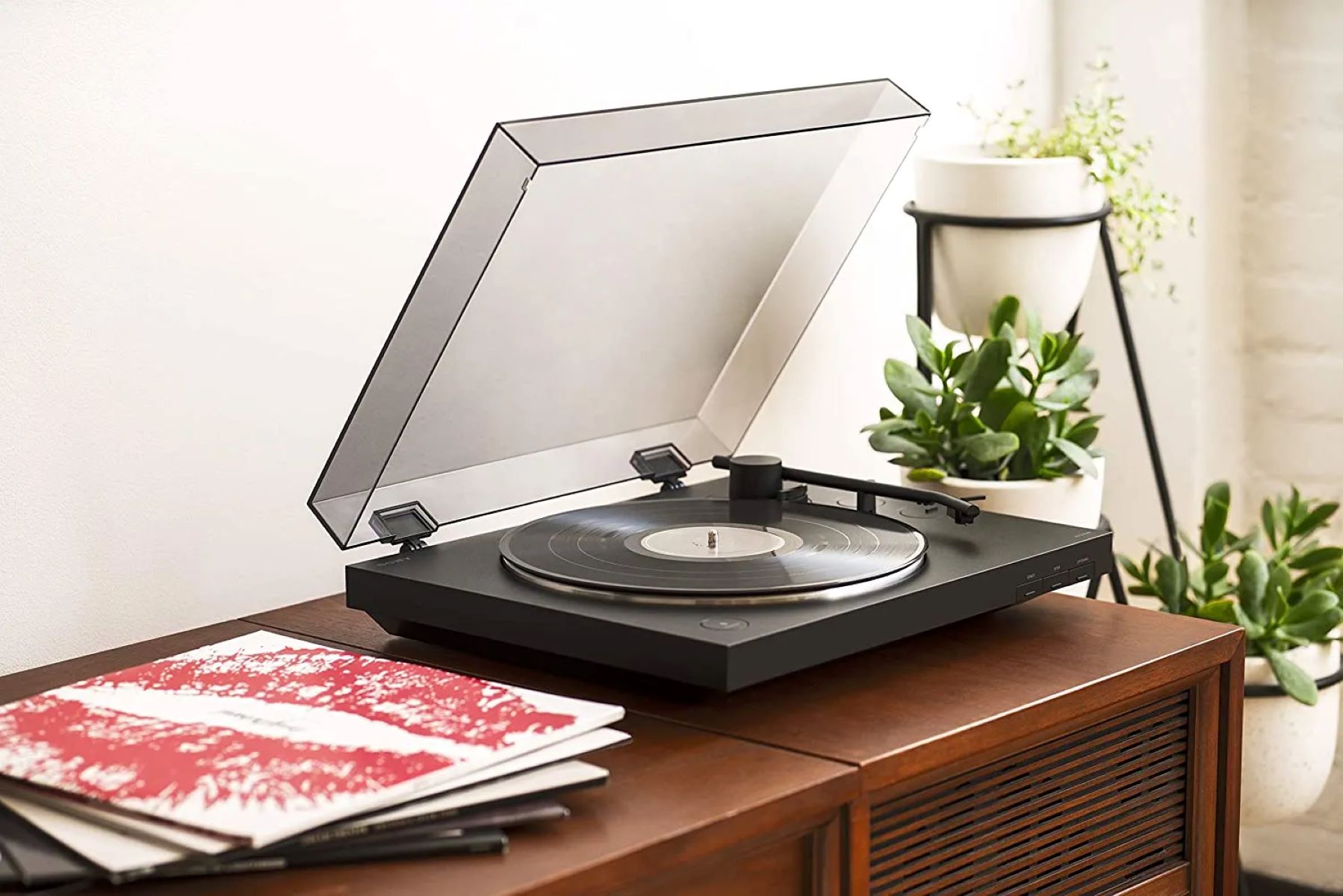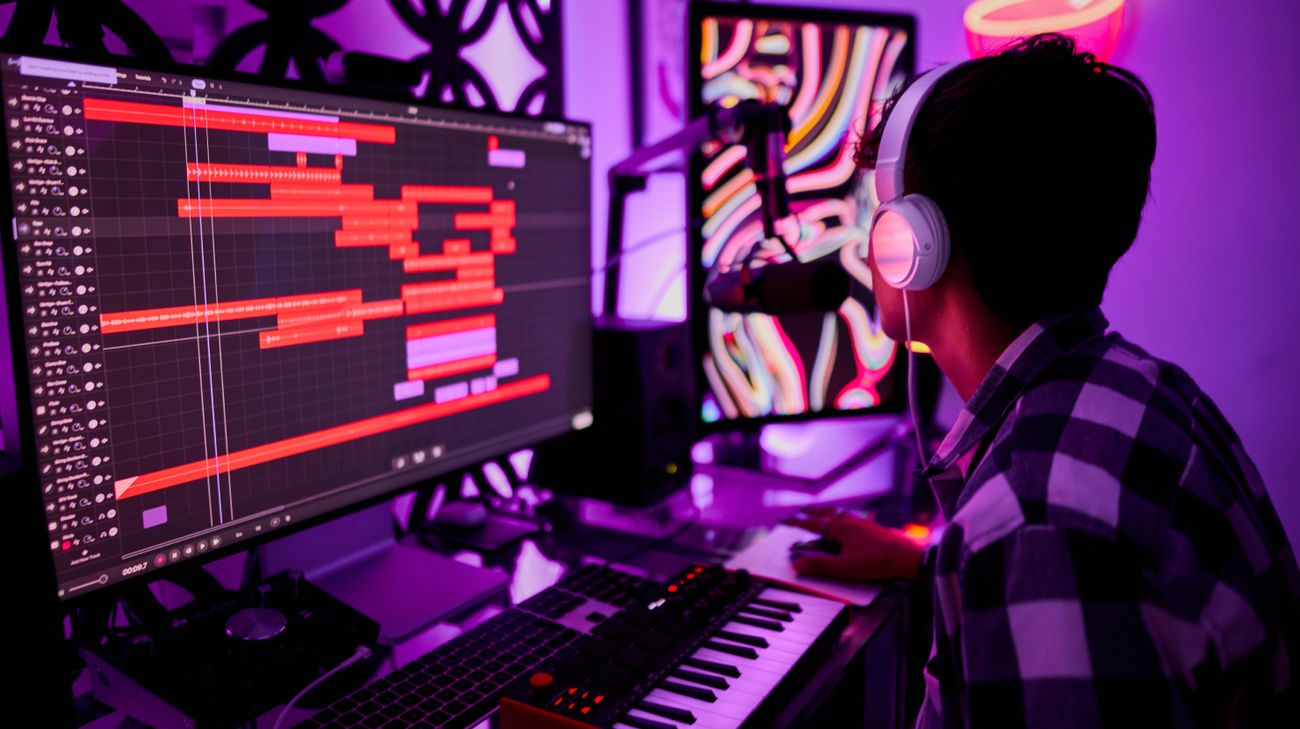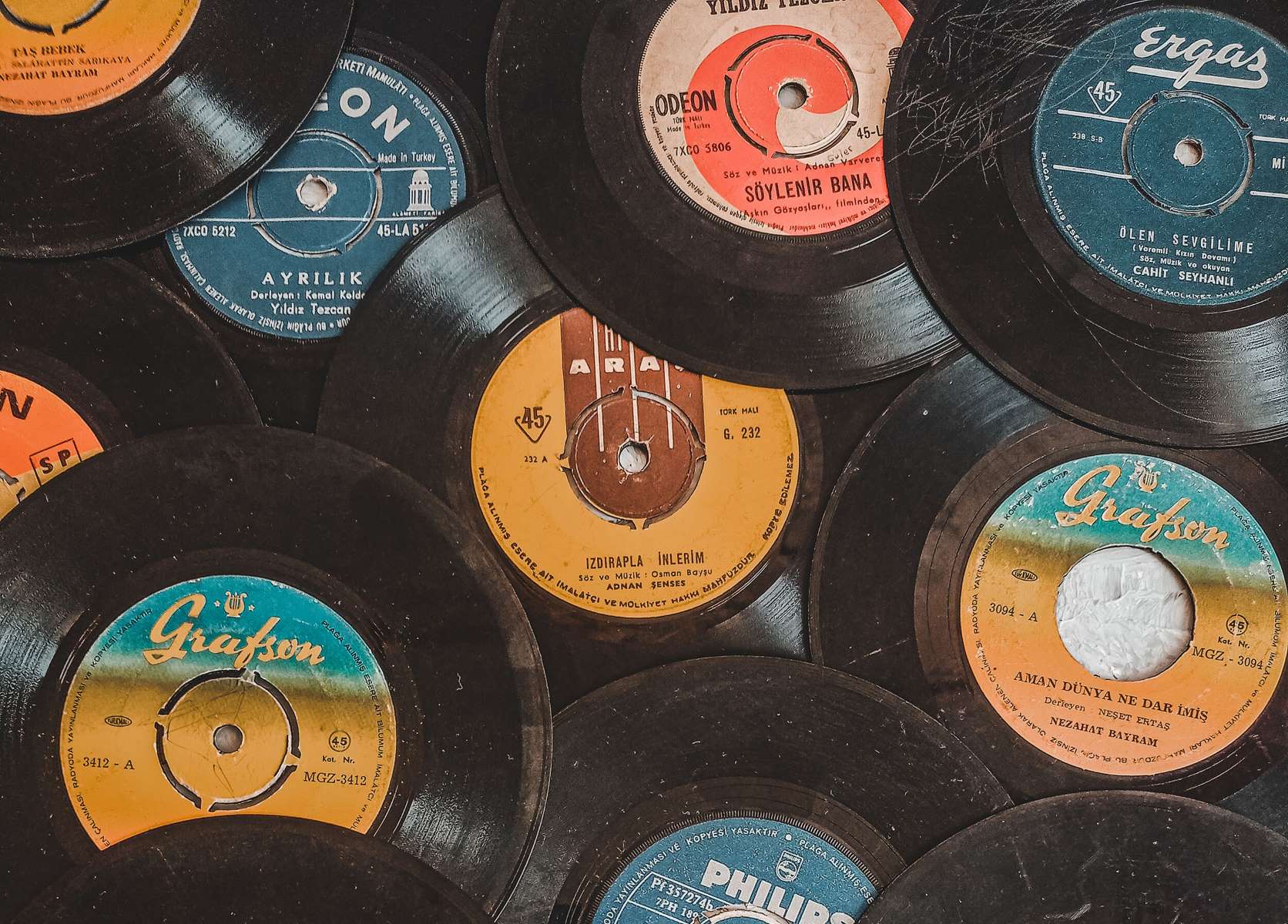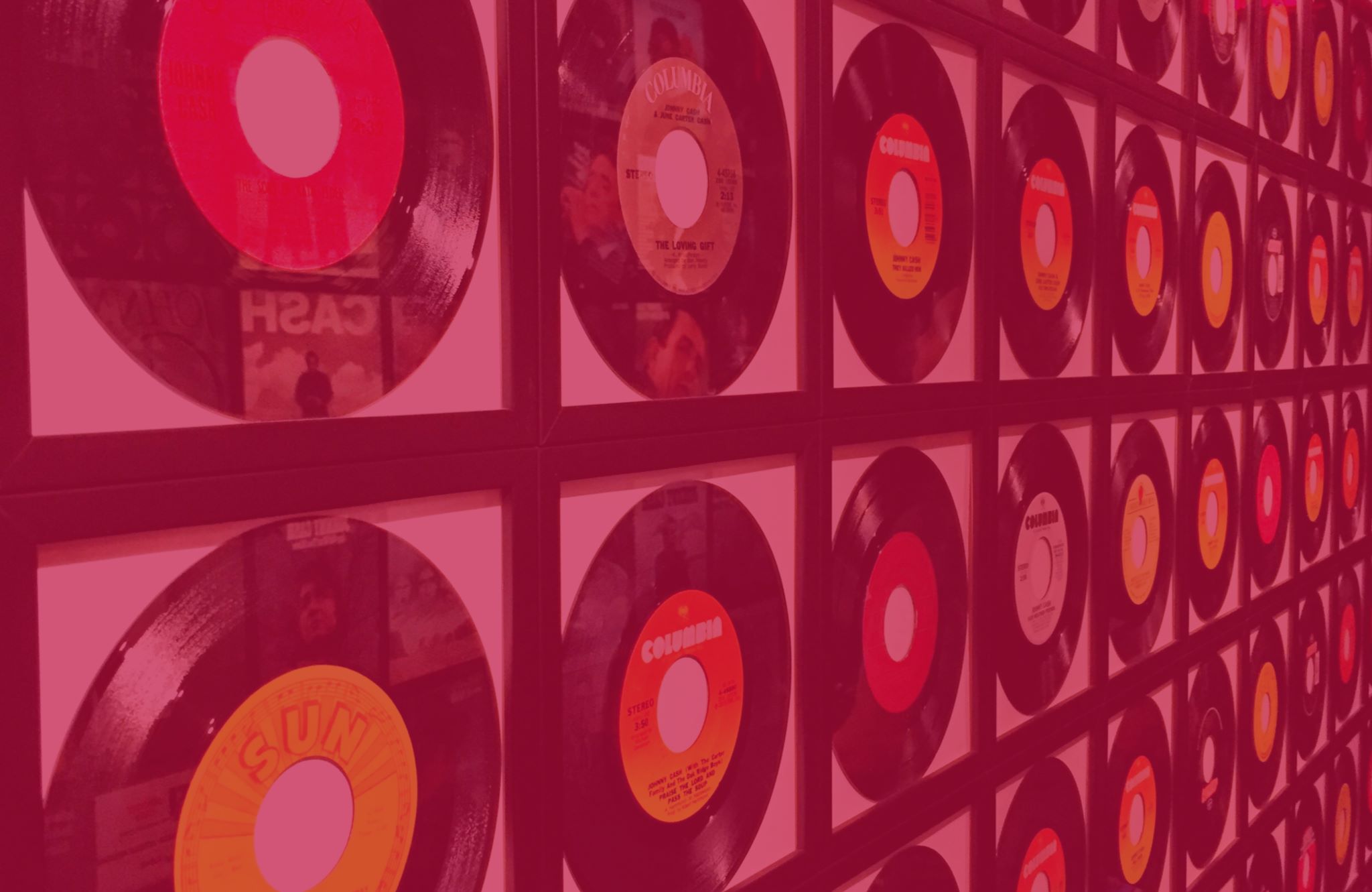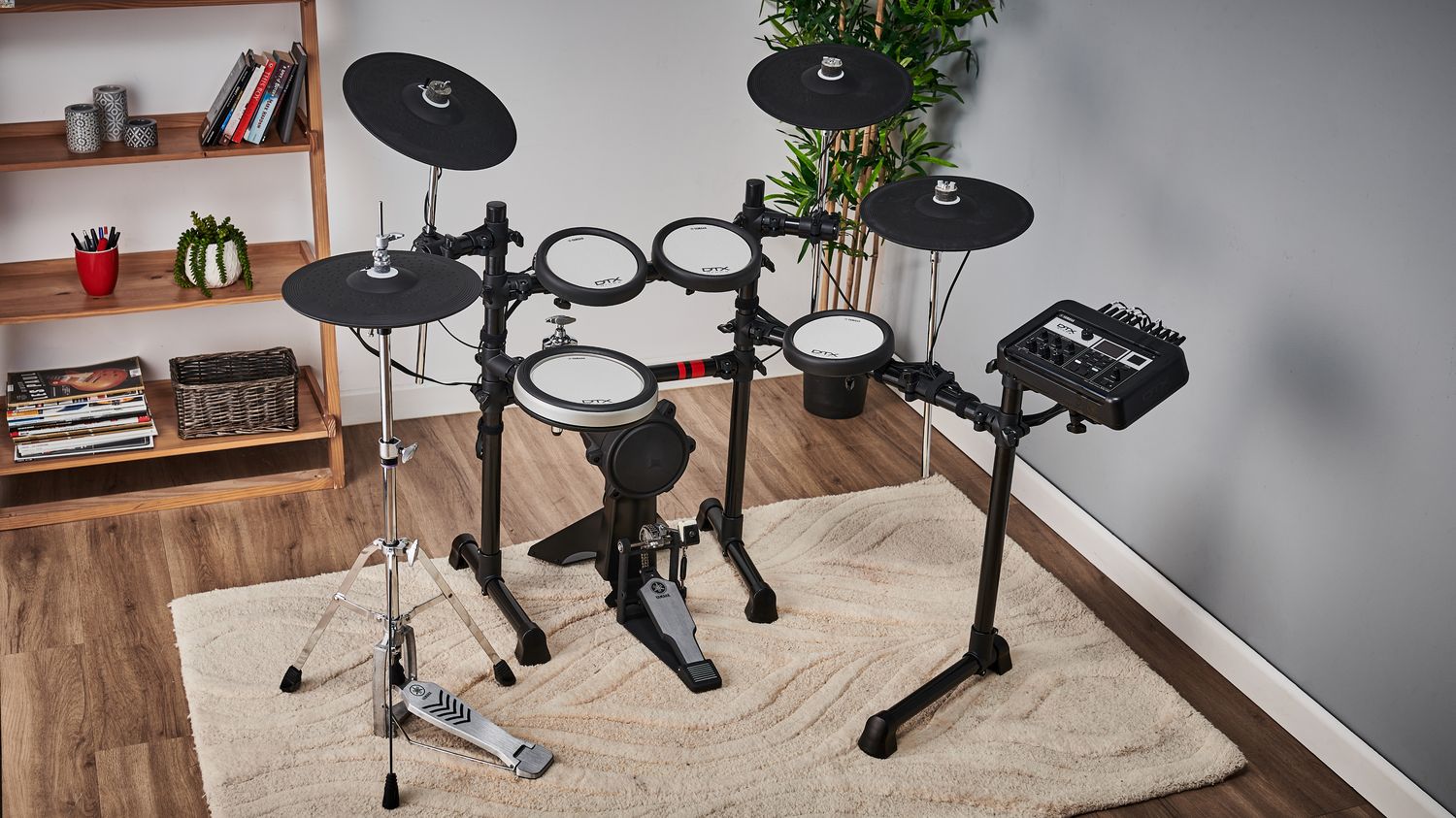Home>Production & Technology>Record Label>How To Make It In Music Without A Record Label


Record Label
How To Make It In Music Without A Record Label
Published: January 24, 2024
Learn how to succeed in the music industry without the need for a record label. Discover effective strategies and tips to make it on your own.
(Many of the links in this article redirect to a specific reviewed product. Your purchase of these products through affiliate links helps to generate commission for AudioLover.com, at no extra cost. Learn more)
Table of Contents
- Introduction
- Finding Your Unique Sound
- Building a Strong Online Presence
- Utilizing Social Media Platforms
- Creating Engaging Content
- Collaborating with Other Artists
- Building a Fanbase through Live Performances
- Networking with Industry Professionals
- Finding Alternative Revenue Streams
- Self-Producing and Promoting Music
- Conclusion
Introduction
In the ever-evolving landscape of the music industry, record labels have traditionally held significant power and influence. They provided the resources and support needed for artists to reach a wider audience and achieve commercial success. However, with the advent of the internet and digital music platforms, the music industry has undergone a major shift. Independent artists now have greater opportunities to make it in the music industry without the backing of a record label.
While signing with a record label still has its advantages, such as access to extensive resources and industry connections, many artists are choosing to take a DIY approach to their careers. This allows them to have complete creative control over their music, retain ownership of their work, and have the flexibility to experiment and evolve.
In this article, we will explore various strategies that can help you make it in the music industry without relying on a record label. From finding your unique sound to building a strong online presence, we will cover essential steps you can take to establish yourself as an independent artist and thrive in today’s music landscape.
By embracing these strategies and putting in consistent effort, determination, and passion into your music, you can pave your own path to success without the need for a record label. So, let’s dive in and discover how you can make it in music without a record label.
Finding Your Unique Sound
In the vast sea of music, it’s crucial to have a distinctive sound that sets you apart from the crowd. Finding your unique sound not only helps you stand out, but it also allows you to connect with your audience on a deeper level. Here are some steps to help you discover and refine your musical identity:
- Explore Different Genres: Dive into different genres of music and explore various musical styles. Experimenting with different sounds can help you discover what resonates with you and what feels authentic.
- Draw Inspiration from Diverse Sources: Look beyond music for inspiration. Draw influence from art, literature, nature, and personal experiences. Incorporate these elements into your music to create a unique blend that reflects your individuality.
- Embrace Your Authenticity: Be true to yourself and embrace your unique qualities. Avoid trying to imitate others or following trends. Authenticity attracts loyal fans who appreciate your genuine expression.
Once you have a clear idea of your unique sound, it is essential to consistently develop and refine it. Experiment with different arrangements, instrumentation, and production techniques to further hone your musical style. This ongoing exploration and growth will help you establish a recognizable identity as an artist.
Remember, finding your unique sound is an ongoing journey. It may take time to fully develop and refine your musical identity, but the key is to stay true to yourself and keep evolving as an artist.
Building a Strong Online Presence
In today’s digital age, having a strong online presence is crucial for independent artists. The internet provides a global platform for showcasing and promoting your music. Here are some strategies to help you build a robust online presence:
- Create a Professional Website: Set up a visually appealing and user-friendly website that showcases your music, bio, upcoming events, and merchandise. Make sure your website is mobile-responsive, as many fans access content on their smartphones.
- Optimize Your Social Media Profiles: Utilize social media platforms like Facebook, Instagram, Twitter, and YouTube to connect with fans and promote your music. Optimize your profiles with high-quality images, engaging bio, and consistent branding.
- Release Music on Digital Platforms: Distribute your music on streaming platforms like Spotify, Apple Music, and SoundCloud. Make sure your music is easily accessible and promote your releases through social media and your website.
- Engage with Your Audience: Interact with your fans by responding to comments, messages, and DMs. Show your appreciation for their support and make them feel involved in your journey as an artist.
- Create Compelling Visual Content: In addition to your music, create engaging visual content such as music videos, behind-the-scenes footage, lyric videos, and live performances. Visual content helps captivate viewers and increases your chances of going viral.
Consistency is key when it comes to building an online presence. Regularly post updates, new music, and engaging content to keep your fans engaged and attract new listeners. Collaborating with influencers or partnering with brands for sponsored content can also help expand your reach.
Remember, building a strong online presence takes time and effort, but it is a vital component of your success as an independent artist. Embrace the digital world and leverage its power to connect with fans, gain exposure, and further establish yourself in the music industry.
Utilizing Social Media Platforms
Social media platforms have become powerful tools for independent musicians to connect with their audience, promote their music, and build a loyal fan base. Here are some effective ways to utilize social media platforms:
- Select the Right Platforms: Identify the social media platforms that align with your target audience and genre of music. Platforms like Instagram, Facebook, Twitter, and TikTok can be highly effective for engaging with fans and promoting your music.
- Create Compelling Content: Regularly share engaging content such as behind-the-scenes footage, snippets of new songs, live performances, and personal insights. The goal is to give your fans a glimpse into your life as an artist and create a sense of connection.
- Engage with Your Audience: Respond to comments, messages, and mentions from your fans. Encourage interaction by asking questions or running contests. Show genuine appreciation for their support and make them feel involved in your music journey.
- Collaborate with Influencers: Collaborating with social media influencers who have a similar target audience can help increase your reach and exposure. Look for influencers who align with your brand and music style, and explore opportunities for cross-promotion.
- Utilize Live Streaming: Take advantage of live streaming features on platforms like Instagram and Facebook to engage with your fans in real-time. Host live Q&A sessions, exclusive performances, or behind-the-scenes glimpses. This fosters a sense of intimacy and connection with your audience.
- Use Hashtags Strategically: Research and utilize relevant hashtags to increase the discoverability of your content. Hashtags can help you reach a wider audience who are interested in your genre or related topics.
Consistency and authenticity are key when utilizing social media platforms. Regularly post content, interact with your fans, and showcase your unique personality and style. Remember to strike a balance between promotional posts and providing value to your followers.
By effectively utilizing social media platforms, you can amplify your reach, engage with fans, and attract new listeners. Embrace these platforms as powerful tools to establish your presence, gain exposure, and cultivate a dedicated fan base.
Creating Engaging Content
Creating engaging content is essential to capture the attention of your audience and keep them coming back for more. Here are some strategies to help you create captivating and shareable content:
- Showcase Your Personality: Let your true self shine through in your content. Share personal stories, thoughts, and experiences that resonate with your audience. Authenticity and relatability are key in building a connection with your fans.
- Create Storytelling Music Videos: Music videos are a powerful medium for storytelling. Invest time and effort in creating visually captivating videos that enhance the narrative of your songs and leave a lasting impact on your viewers.
- Share Behind-the-Scenes Footage: Take your fans on a journey behind the scenes of your music creation process. Show glimpses of your studio sessions, rehearsals, and any interesting anecdotes. This allows your audience to feel more connected and invested in your music.
- Collaborate with Visual Artists: Partner with visual artists, such as illustrators or graphic designers, to create unique and eye-catching artwork for your singles, albums, and social media posts. The visuals will add an extra layer of interest and entice your audience to engage with your content.
- Run Contests and Giveaways: Encourage engagement and excitement by running contests and giveaways. Offer exclusive merchandise, concert tickets, or even personalized experiences as prizes. This not only generates buzz but also rewards your dedicated fans.
- Document Your Journey: Share your progress and milestones with your audience. Whether it’s recording in the studio, preparing for a live performance, or reaching a significant milestone in your career, let your fans be a part of your journey as an artist.
Remember that content creation is about quality over quantity. Focus on creating content that showcases your unique style, resonates with your audience, and leaves a lasting impact. Experiment with different formats and strategies to find what works best for you and your audience.
By consistently creating engaging and shareable content, you can not only attract and retain a loyal fan base but also increase your chances of your content going viral and reaching a wider audience.
Collaborating with Other Artists
Collaborating with other artists can be a game-changer for your music career. It opens up new opportunities for creativity, exposure, and building connections within the music industry. Here are some ways to make the most out of collaborations:
- Find Complementary Artists: Look for artists whose style and genre align with yours and whose strengths complement your own. Collaborating with artists who bring something different to the table can lead to unique and exciting musical creations.
- Create Diverse Collaborative Projects: Explore different types of collaborations, such as featuring in each other’s songs, creating joint EPs or albums, or even performing live together. These projects can help introduce your music to a new audience and increase your exposure.
- Share Fan Bases: Collaborating allows you to tap into each other’s fan bases and gain new listeners. Promote each other’s work on social media, mention each other in interviews, and cross-promote your music to expand your reach.
- Learn from Each Other: Collaborations provide an opportunity to learn and grow as an artist. Working with other talented musicians allows you to observe their creative processes, gain new insights, and expand your skill-set.
- Explore Cross-Genre Collaborations: Don’t be afraid to venture outside your comfort zone and collaborate with artists from different genres. Cross-genre collaborations can create unique and unexpected musical fusions that appeal to a wider audience.
- Network and Connect: Collaborations open doors to networking opportunities within the music industry. Building relationships with other artists can lead to future collaborations, live performance opportunities, and even potential record label connections.
Effective collaboration requires open communication, mutual respect, and a willingness to compromise. Be open to new ideas, be flexible in your approach, and ensure that all collaborators have a chance to contribute their creative input.
Remember, collaboration is a powerful tool for growth and exposure as an artist. By working with other talented musicians, you can expand your horizons, create incredible music, and collectively reach new heights in your careers.
Building a Fanbase through Live Performances
Live performances are a cornerstone of a musician’s career and can be a powerful tool for building a loyal and engaged fanbase. Here are some strategies to help you connect with your audience and grow your fanbase through live performances:
- Stage Presence: Command the stage with confidence and charisma. Engage with your audience, make eye contact, and show genuine enthusiasm for your music. A captivating stage presence helps create a memorable experience for your fans.
- Deliver High-Quality Performances: Strive for excellence in your live performances. Practice extensively, ensuring that your vocals and instrumentals are on point. Deliver a polished and energetic performance that leaves a lasting impact on your audience.
- Interact with the Audience: Foster a sense of connection by interacting with your audience during your live performances. Encourage sing-alongs, invite them to participate, and take time to talk to fans after the show. These personal interactions help create a loyal and dedicated fanbase.
- Vary Your Setlist: Keep your live performances fresh and exciting by varying your setlist. Include a mix of fan favorites, new releases, and even surprise covers. This keeps your audience engaged and eager to attend future shows.
- Collaborate with Other Artists: Consider collaborating with other artists for joint live performances. This not only brings a new dynamic to your shows but also exposes you to the fanbases of your collaborators, helping you reach new listeners.
- Utilize Social Media: Use social media to promote your upcoming shows and create excitement among your followers. Share behind-the-scenes footage, exclusive previews, or ticket giveaways to generate interest and encourage attendance.
- Take Advantage of Music Festivals and Local Shows: Participate in music festivals, local shows, and open mic nights to showcase your talent to a wider audience. These events provide valuable opportunities to gain exposure and connect with music enthusiasts.
Remember, live performances are a chance to not only showcase your music but also create an emotional connection with your audience. Make each performance a memorable experience, leaving your fans wanting more.
Building a fanbase through live performances takes time, effort, and dedication. Consistently delivering high-quality performances, interacting with your audience, and utilizing social media to promote your shows will contribute to the growth of your fanbase and the success of your music career.
Networking with Industry Professionals
Networking with industry professionals is crucial for gaining visibility, finding new opportunities, and advancing your music career. Building relationships with industry insiders can open doors to collaborations, live performances, endorsements, and even potential record label deals. Here are some strategies to help you effectively network with industry professionals:
- Attend Music Conferences and Events: Participate in music conferences, festivals, and industry networking events. These gatherings provide opportunities to meet and connect with professionals in the music industry, including record label representatives, talent agents, producers, and managers.
- Approach Music Industry Organizations: Research and approach local and national music industry organizations. Join networking groups, attend workshops, or become a member to gain access to a network of industry professionals.
- Utilize Social Media: Social media platforms like LinkedIn can be valuable tools for networking. Connect with industry professionals, engage with their content, and participate in relevant industry discussions. Building a strong online presence can help catch the attention of industry insiders.
- Build Genuine Relationships: When interacting with industry professionals, focus on building genuine and mutually beneficial relationships. Take the time to understand their work and career goals, and show interest in their projects. Networking is not solely about what others can do for you but also about how you can contribute value to their networks.
- Collaborate with Producers or Songwriters: Partnering with established producers or songwriters can help you gain exposure to their network of industry professionals. Their connections and insights can prove invaluable as you navigate the music industry.
- Seek Feedback and Guidance: Don’t be afraid to seek feedback and guidance from industry professionals. Constructive criticism can help you improve your craft, and their advice can provide valuable insights into navigating the industry.
- Network within Your Local Music Scene: Engage with and support your local music community. Attend local shows, connect with fellow musicians, and build relationships with venue owners, booking agents, and promoters. These connections can lead to performance opportunities and additional networking possibilities.
Remember, networking is an ongoing process that requires patience and persistence. Cultivate meaningful connections, foster genuine relationships, and always be professional in your interactions. It is through these connections that you can find new opportunities and take your music career to new heights.
Finding Alternative Revenue Streams
In the music industry, it’s important to diversify your income streams to support your music career. While music sales and performances are traditional revenue sources, exploring alternative avenues can provide stability and financial sustainability. Here are some alternative revenue streams to consider:
- Merchandise Sales: Create and sell merchandise such as t-shirts, hoodies, posters, and accessories featuring your logo or artwork. Fans love to support their favorite artists through merchandise purchases, which can generate a steady income stream.
- Crowdfunding: Utilize crowdfunding platforms like Kickstarter or Patreon to engage your fanbase and raise funds for specific projects, such as album recordings, music videos, or tours. Offering exclusive perks and rewards to your supporters can further incentivize their contributions.
- Streaming Royalties: While streaming services may not generate substantial revenue individually, collectively they can contribute to your income. Utilize platforms like Spotify for Artists to track your streaming metrics and maximize your royalty earnings.
- Sync Licensing: Explore opportunities to license your music for film, television, commercials, and video games. Sync licensing can provide a significant boost in income and exposure if your music is selected.
- Music for Events: Offer your services as a live performer for weddings, corporate events, and private parties. These gigs can be financially rewarding, allowing you to showcase your talent while earning income.
- Teaching and Workshops: Share your knowledge and skills by offering music lessons, workshops, or mentoring programs. This allows you to generate income while passing on your expertise to aspiring musicians.
- YouTube and Online Content: Monetize your YouTube channel or other online platforms by attracting a large audience and incorporating advertisements or sponsored content. Collaborating with brands or featuring their products in your videos can also generate additional income.
- Music Licensing Libraries: Submit your music to online licensing libraries, where it can be discovered and licensed for use in various media projects. This can provide a consistent income stream as your music gets licensed repeatedly.
It’s important to actively explore and pursue these alternative revenue streams to supplement your music earnings. Remember to diversify your income sources, adapt to changing trends, and engage with your fanbase to maximize your revenue potential.
While the music industry can be challenging, embracing alternative revenue streams can provide stability and support for your music career, allowing you to focus on creating and sharing your art with the world.
Self-Producing and Promoting Music
In today’s digital landscape, self-producing and promoting your music has become more accessible than ever before. By taking on these roles yourself, you retain creative control, save costs, and have the flexibility to experiment and iterate. Here are some strategies to effectively self-produce and promote your music:
- Invest in Quality Recording Equipment: Set up a home studio or invest in professional recording equipment to capture high-quality audio. This allows you to have full control over the recording process and create polished, professional-sounding tracks.
- Learn Music Production: Acquire music production skills through online tutorials, courses, or workshops. Understanding the technical aspects of mixing, mastering, and sound engineering empowers you to achieve the desired sonic quality in your recordings.
- Collaborate with Producers and Engineers: If self-production feels overwhelming, consider collaborating with experienced producers or engineers who can bring their expertise to your project. This collaboration can elevate the quality of your music while still allowing you to maintain creative control.
- Create a Strong Online Presence: Utilize social media platforms, your website, and streaming platforms to promote your music. Regularly release singles, EPs, or albums on platforms like Spotify, Apple Music, or SoundCloud to reach a wider audience and gain traction.
- Engage with Your Fanbase: Interact with your fans through social media, respond to comments and messages, and make them feel like they are a part of your music journey. Engaging with your fanbase helps foster loyalty and build a supportive community.
- Take Advantage of Online Music Communities: Join online music forums, groups, and communities to connect with like-minded musicians, promote your music, and gain valuable feedback. Networking with other artists can lead to collaborative opportunities and exposure to new audiences.
- Create Visually Engaging Content: Invest time and effort in creating compelling visual content to accompany your music. This can include music videos, lyric videos, live performance recordings, or even artistic visuals that reflect the mood and theme of your songs.
- Seek Playlist Placements: Pitch your songs to playlist curators on platforms like Spotify and Apple Music. Getting your music featured on popular playlists can significantly increase your exposure and attract new listeners.
- Build Relationships with Music Bloggers and Influencers: Research and reach out to music bloggers, podcasters, and social media influencers who cover your genre of music. Offer them exclusive access to your music or interview opportunities to foster relationships and gain exposure.
Self-producing and promoting your music requires dedication, continuous learning, and an entrepreneurial mindset. Embrace the challenges and opportunities that come with taking on these roles, and remember that consistency and authenticity in your music and promotion efforts are key to establishing your presence in the industry.
By self-producing and promoting your music effectively, you not only retain creative control but also have the potential to reach a global audience and make a significant impact with your music.
Conclusion
In today’s music industry, independent artists have more opportunities than ever before to make it without a traditional record label. By implementing the strategies outlined in this article, you can carve your own path to success, connect with your audience, and build a thriving music career.
Finding your unique sound, building a strong online presence, and utilizing social media platforms are essential steps to establish your identity and reach a wider audience. Creating engaging content, collaborating with other artists, and building a fanbase through live performances help cultivate dedicated supporters who will champion your music.
Networking with industry professionals, finding alternative revenue streams, and taking on the roles of self-production and promotion empower you to have control over your music and finances. By diversifying your income and exploring various avenues, you become less reliant on traditional revenue sources.
Remember, success in the music industry takes time, dedication, and perseverance. Embrace the journey, stay true to your artistry, and continuously strive for growth and improvement. Connect with your fans, engage with the community, and never stop pushing the boundaries of your creativity.
While a record label can provide valuable resources and support, the empowerment that comes from successfully navigating the industry independently is priceless. With determination, passion, and a strong work ethic, you have the potential to make a lasting impact and achieve your goals as an independent artist.
So, go forth, create your music, connect with your audience, and make your mark on the music industry. The possibilities are endless, and the world is waiting to discover your talent. Trust in your abilities and never underestimate the power of your own voice.


